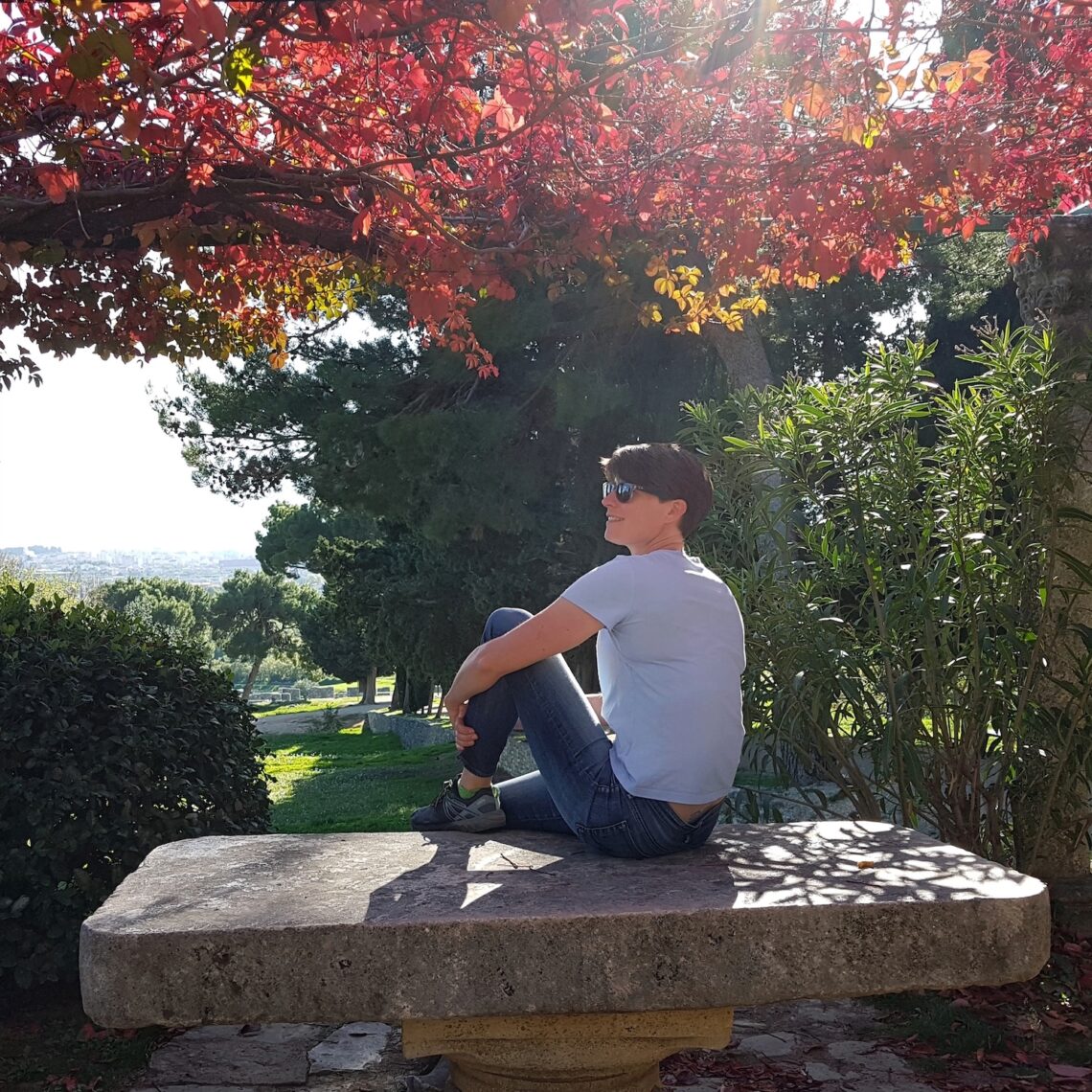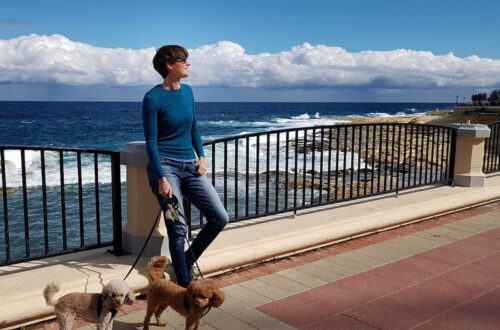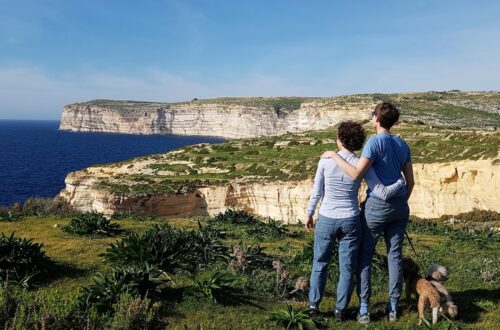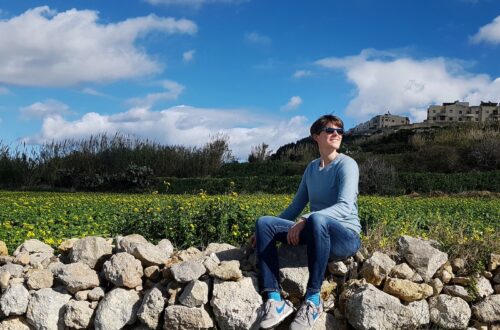
What’s It Like To Retire In My 30s?
Life Lessons From Retiring Before 40
With my 40th birthday approaching this month, it’s a good time to reflect on the experience of having retired from work in my 30s. I sometimes ask myself: Is this really my life? How did I go from being a corporate worker bee counting down the days until my next vacation to be where I am today: Free of financial worries and traveling the world full time. In truth, it’s taken me a whole year to digest this huge life change.
Leaving a regular working life at age 38 was a huge decision for me and I didn’t make it lightly. I had invested so many years building my career, including undertaking a graduate degree and eventually moving to Singapore to work as an expat. Yes, I had been saving and investing my entire life with a focused push towards financial independence for the last couple years, as I talked about in a recent interview with the Marriage, Kids & Money blog about becoming a millionaire in my 30s.
Despite all my careful planning and preparation, it was still a shock when I finally quit my job. Over a year later, the shock has finally worn off and I’m ready to share the upsides and downsides of retiring so early.
Many years ahead
Let’s start with one of the biggest benefits of retiring so early and that is having so many years ahead of me. There’s more than enough time for me to do all the things I couldn’t do while I was working; dreams that I put on hold while I was busy making practical choices and focusing on my career.
When I was in my teens, I felt like I had all the options in the world; I could do anything or be anything. And one of the things I decided to do was join the Canadian military. I originally joined the military for the adventure but ultimately it locked me into a nine year plan: four years of undergrad studies at the Royal Military College and five years of obligatory service once I was done with school.
All in all, being part of the military was a great experience and I would do it over again. However it did limit my ability to choose my own path. My lifestyle was ultimately dictated by the needs of the military… what I studied, where I lived, and what jobs I held. During that time, I would often think to myself: when I leave the army, that’s when I’ll backpack Europe or spend a summer tree planting like my friends had done.
But, by the time, I left I was already a “grown up.” I was married and had a mortgage and my choices felt limited once again. It was never a good time to take off for a volunteer mission in Africa or spend a few months in Southeast Asia. As the years went on, I became more locked into the standard corporate path and even forgot that there might be other options.
Now that I’ve retired early, I’m in a place where I feel that anything is still possible. I have so many years ahead of me to create a new path and pick up on some of those earlier dreams that I had forgotten.
Not a traditional retirement
That leads me to my next point, which is that retiring in my 30s is not what most people picture — fairly or unfairly — as a traditional retirement. I haven’t put in a solid 40 or 50 years and am now ready for a life of complete leisure, sitting under a palm tree with a pina colada.
Because I have so many years ahead of me, there’s more than enough time to design a lifestyle that’s right for me. I could get another degree or start a business, become a homesteader or travel to every continent. In fact, I don’t have to do just one thing; there’s enough time for me to do all those things and more. And as I explore who I am outside the corporate world, I expect there will be multiple chapters for this next phase of life.
Community service
One thing that I know I want to include in my new life is community service. Contributing to society has always been important to me. That’s why I joined the military to begin with and that’s why I eventually went into the field of healthcare. I always felt good about my career path because I knew my work made a real difference to the quality of people’s healthcare and ultimately their lives. It meant a lot to me to know that I was contributing to society in a positive way.
Now that I’ve closed out my career, it’s led me to reflect on how I can continue to contribute in other ways. I don’t want my early retirement to be all about me; I still want to give my time and energy and skills to causes that are important to me.
My first year of early retirement has been a time when I could finally decompress from years of stress and be a bit self indulgent. But now, with my first year behind me and so many years ahead, It’s about time to look for opportunities to start giving back again.
Social isolation
For all the positives of early retirement, there is still a formidable negative, which is social isolation. We’ve shared previously about the need to overcome the feeling of social isolation in a recent video about what surprised us the most in our first year of retirement.
I know very few people from my immediate circle of friends who are even interested in the concept of financial independence and retiring early. And I don’t know anyone in my circle who has actually taken the plunge and retired early like me.
Of course, my friends are happy for me that I’m able to pursue this lifestyle but we have less in common now. Many of my friends are focused on building their careers and renovating their homes and following a more traditional path. Meanwhile, I’ve given up my career, sold all my possessions and am now traveling the world full time. Both of these paths are valid but they are quite different. This has left me feeling somewhat alienated from peers, who likely find my choices to be just as unrelatable.
Fortunately, there is a whole wide world of like-minded people in the financial independence and retire early community. And I’ve been able to make new friends who I keep in touch with online, through video calls and even in-person meet ups around the world. I think that’s probably the greatest benefit of our YouTube channel and blog: the ability to connect with a larger community of people who have the same interests.
My time
Now that I’ve retired early, I’m able to have a new perspective on how I spend my time. Before reaching financial independence, my life decisions and where I focused my time and energy were strongly influenced by whatever would give me the biggest financial gain. When I was in high school, instead of spending the summer traveling, I would get a job and earn money. When I was in university, I would rather take a course for extra credit than have the extra downtime. When I was working, I never did take time off to pursue that volunteer project I was thinking about.
The benefit of my focus on financial gain is that I eventually accumulated enough to retire so early, and I’m grateful for that. However, it came at a personal cost. I felt like I missed out on some of the fun stuff in my 20s and 30s. I never spent that summer backpacking in Europe, like I mentioned earlier, or hiking the Annapurna circuit in Nepal. But even more than missing out on fun, I sometimes wonder if it limited my personal development because I rarely let myself pursue something purely out of personal interest. I was too busy making practical choices and earning money.
Today I no longer feel the impulse to equate my time with money and it’s a huge weight off my shoulders. I feel free to fill my days with things I want to do out of interest and not for financial reasons.
No more excuses
On a related note, I’ve come to realize that I now have no more excuses for being unhappy. I spent many years blaming any unhappiness in my life on my job. Whether it was my work routine or the job requirements or the organization, my job was always an easy scapegoat for any stress or anxiety that I felt.
I assumed that when I retired, my stress would magically fall away and I would be a completely new person. Of course, that was not the case at all. While our life in early retirement is really enjoyable, I do still experience stress and anxiety just like everyone else.
The difference is that now I don’t have a job to blame it on. Over the past year of early retirement I have accepted that I am the only one responsible for my happiness. It’s up to me to either change the situation or my attitude or both. Of course, this is a work in progress and a great project for me as I enter my 40s this month.
What I would have done differently
Finally, when I look back on my whole financial journey, what would I have done differently? As I just mentioned, I spent many years being unhappy about my job and wanting a different kind of life. However, instead of putting in the hard work of figuring out a new vision for my life, I just let the unhappiness pile up. During this time, I started treating myself to lots of vacations and fancy dinners out in an attempt to make myself feel better. I chose the route of lifestyle inflation instead of figuring out what would make me happy and working towards it.
All that time I could have been putting my energy towards financial independence. Who knows, I might have been able to retire a year or two earlier and certainly would have been happier in the process.





5 Comments
Pingback:
Dividend Power
Soudns like you ahd a plan. It’s nice that you probably finshed your undergread years with little-to-no debt. That is a huge advantage when it comes to building wealth and FIRE.
Our Freedom Years
Thanks Dividend Power! It’s true that starting out with no debt makes a huge difference in the long run. Of course, it was a trade off. I had to do my obligatory service after university and didn’t have much latitude with choosing my own career direction. But I really value my time in the military and feel happy with my choice.
Pingback:
Pingback: